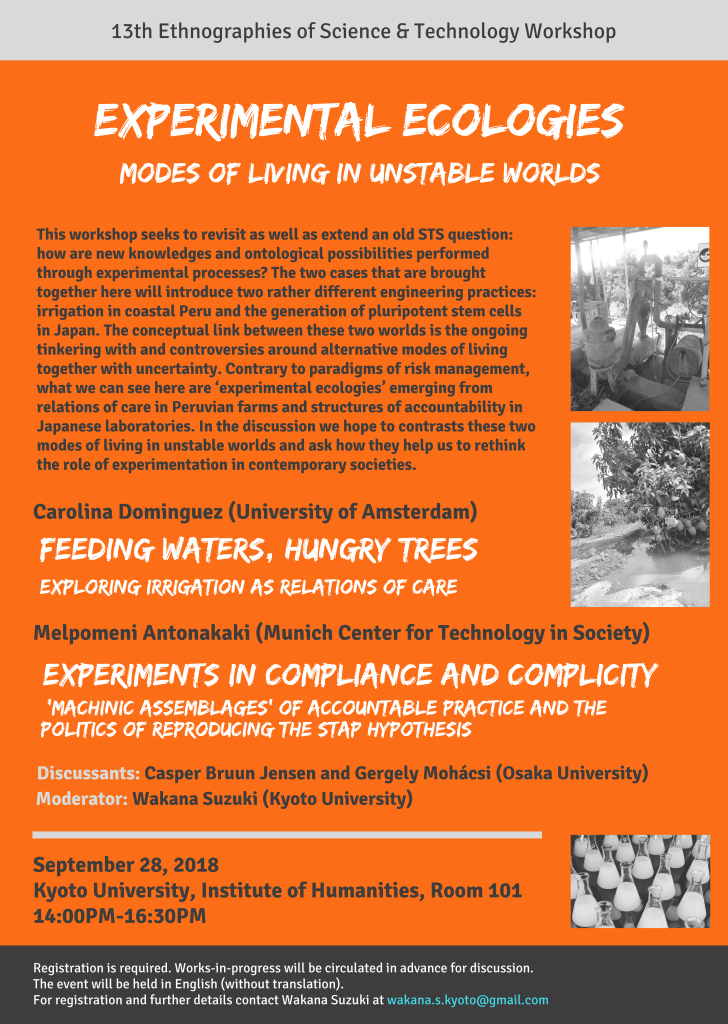Rather than a pronounced topic of its own, epistemological and ontological experimentations at the crossroads of the conceptual and the empirical have been an underlying theme throughout the first five volumes of NatureCulture. From ethnographic explorations of the experimental sciences to thought experiments in science fiction, this line of inquiry aimed to capture the ongoing and recursive relatedness of scientific and social worlds in the making.
I define experiments in a broad sense as technical-social assemblies that arrange and gather data about interventions into the world toward the possibility of making something different happen. In this sense experiments are conjectural future-making assemblages. In experimentality, access to different futures can be conditional on attaching to experiments. (...)
Experimentality hails life as composed of potential, of chances, of possibilities for becoming, of manipulable relations that can be triggered and altered, if only the right protocol and technique can be deployed.
Michelle Murphy, The Economization of Life, Duke University Press, pp.80-81
In the first article ever published in the journal NatureCulture, Casper Bruun Jensen discussed a series of variations that take their vantage point from the entanglement of the conceptual and the empirical across anthropology and STS.
In the following section, we can see how an experimental setting that extends beyond the laboratory becomes a site where emic and etic feed into one another.
In her recent book Natural Reflections (Smith 2010: 2–5), B. H. Smith explains how, in the early 1950s, Marion Keech, resident of a town in the U.S. Midwest, called on...Read more
It is such an ongoing experimental engagement with actors, scales, ontologies, perspectives, etc., Jensen argues, that can help us to suspend the reproduction of common sense ideas about the "human" and the "social".
As Natasha Myers in her article in volume 3 showed, common sense ideas of nature and culture are challenged again in the laboratory of plant scientists. She introduced the reader to the emerging sciences of plant sensing through ethnographic conversations in American and German molecular biology laboratories. Building on her earlier work, Myers explored the affective and experimental entanglements of plants and scientists that tunes the latter into the rich sensory worlds of the former. She asked: “Is it possible that practitioners’ sensoria get ‘vegetalized’ over the long duration of their experimental inquiry? If so, how might their vegetalized perceptions and imaginations shape the direction of their inquiry and the ways they think and talk about plants?” (Myers, Conversations on Plant Sensing, 42)
[One of the plant scientists] tells me how her lab is trying to bring this sunflower experiment indoors, into controlled conditions. “We can do this in a growth chamber too. So we’ve got LED lights turned on sequentially to mimic the sun moving. And we have a camera that can monitor the...Read more
Experimenting with plants can change the very meanings of sense and cognition—both for humans and for other living beings illustrating Michelle Murphy’s argument quoted at the beginning of this section that experiments are future-making assemblages. In these laboratories, scientific knowledge of life and are becoming with the sensory worlds of plants.
